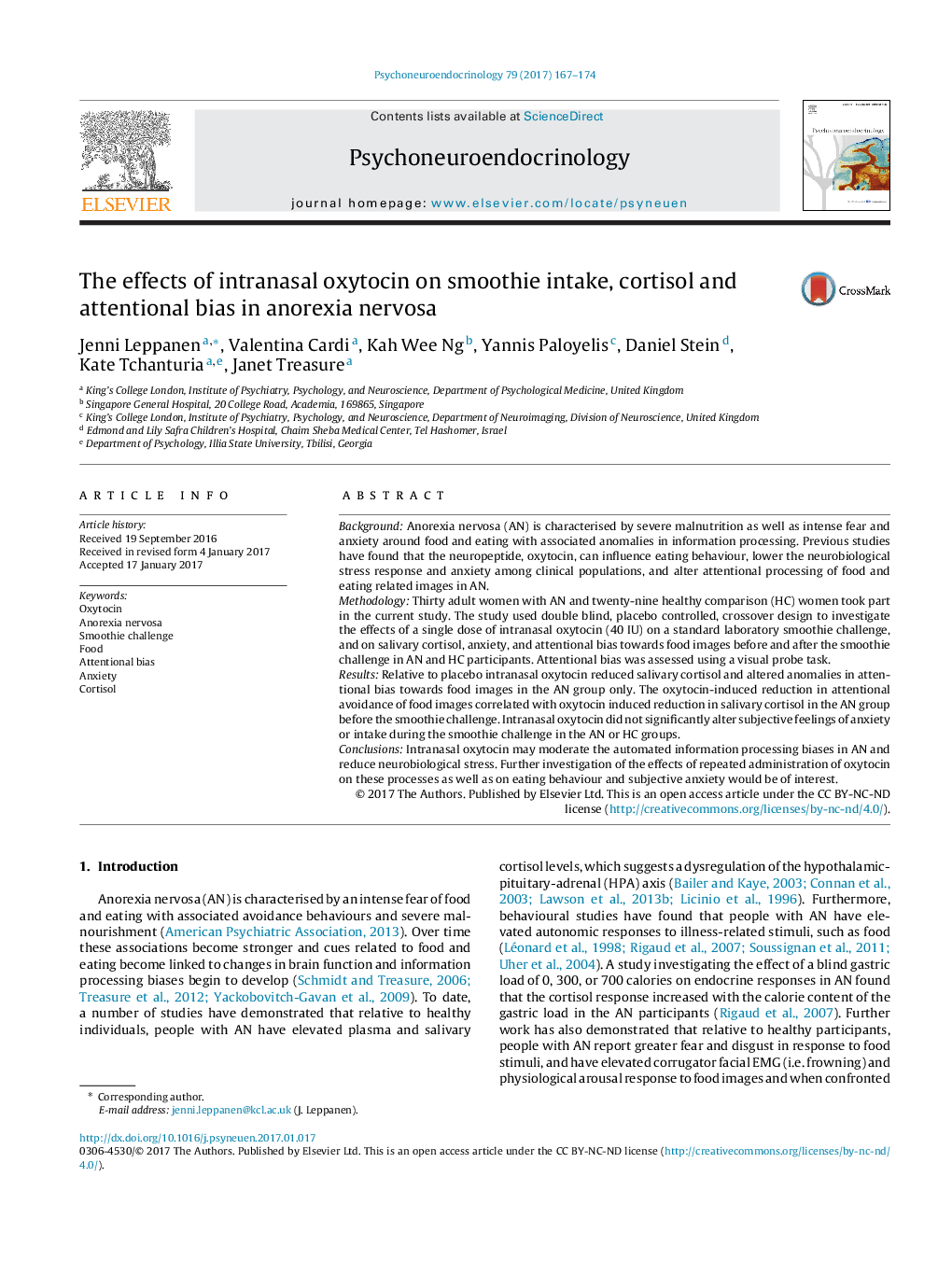| کد مقاله | کد نشریه | سال انتشار | مقاله انگلیسی | نسخه تمام متن |
|---|---|---|---|---|
| 4934523 | 1433964 | 2017 | 8 صفحه PDF | دانلود رایگان |
- Intranasal oxytocin reduces salivary cortisol in anorexia nervosa.
- Intranasal oxytocin reduced attentional bias towards food images following a standard smoothie challenge.
- There was no effect of intranasal oxytocin on smoothie intake in the anorexia nervosa or healthy comparison groups.
BackgroundAnorexia nervosa (AN) is characterised by severe malnutrition as well as intense fear and anxiety around food and eating with associated anomalies in information processing. Previous studies have found that the neuropeptide, oxytocin, can influence eating behaviour, lower the neurobiological stress response and anxiety among clinical populations, and alter attentional processing of food and eating related images in AN.MethodologyThirty adult women with AN and twenty-nine healthy comparison (HC) women took part in the current study. The study used double blind, placebo controlled, crossover design to investigate the effects of a single dose of intranasal oxytocin (40 IU) on a standard laboratory smoothie challenge, and on salivary cortisol, anxiety, and attentional bias towards food images before and after the smoothie challenge in AN and HC participants. Attentional bias was assessed using a visual probe task.ResultsRelative to placebo intranasal oxytocin reduced salivary cortisol and altered anomalies in attentional bias towards food images in the AN group only. The oxytocin-induced reduction in attentional avoidance of food images correlated with oxytocin induced reduction in salivary cortisol in the AN group before the smoothie challenge. Intranasal oxytocin did not significantly alter subjective feelings of anxiety or intake during the smoothie challenge in the AN or HC groups.ConclusionsIntranasal oxytocin may moderate the automated information processing biases in AN and reduce neurobiological stress. Further investigation of the effects of repeated administration of oxytocin on these processes as well as on eating behaviour and subjective anxiety would be of interest.
Journal: Psychoneuroendocrinology - Volume 79, May 2017, Pages 167-174
